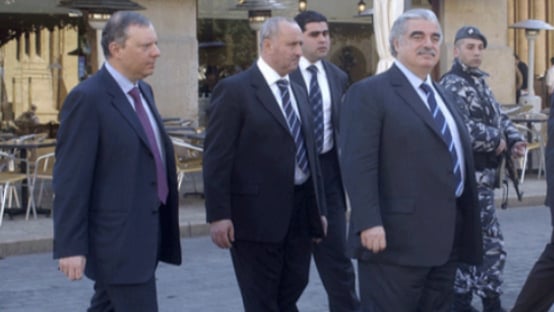Like an unknown ghost attacking the globe, the coronavirus (COVID-19) has been declared a pandemic by the World Health Organization. It continues to soar, affecting 210 countries across the world, but a glimmer of hope appears as the number of recoveries is greater than the death toll, with a steep decline in coronavirus cases in China—the epicenter of the COVID-19 outbreak.
Out of close to 2.5 million confirmed cases of coronavirus, some 640,000 patients have recovered, while over 168,000 have died so far, according to April 20 figures collected and published by the Coronavirus Resource Center at Johns Hopkins University. This statistical distribution means that about 26 percent of confirmed infected and sick people have recovered, while 74 percent are asymptomatic and almost 7 percent have died after contracting the coronavirus and becoming ill, according to Worldometer’s data.
Asked by Inside Arabia about the daily rate of polymerase chain reaction (PCR) tests for the novel coronavirus, a medical source in Rafik Hariri University Hospital (RHUH) in Beirut, the leading COVID-19 testing and treatment center in Lebanon, pointed out that “the hospital laboratory conducts between 100 and 300 tests per day.”
The source further explained that the “coronavirus section in RHUH is equipped with more than 100 beds, and there are rooms for children who are infected, and indeed children under the age [of] 14 have been hospitalized and recovered.”
“Social service workers in the hospital are [also] supporting all patients to ensure their mental health,” the source added.
Among the things giving hope to the Lebanese people was a video published by the Lebanese Consulate in Marseille, France on April 9, which showed the visit of French President Emmanuel Macron to the Marseille University Hospital Institute for Infectious Diseases, where he met French physician and microbiologist Didier Raoult. Raoult is currently heading research on hydroxychloroquine and azithromycin as a promising treatment of COVID-19. What makes the video remarkable is that 14 researchers in Raoult’s team are from Lebanon. It is worth mentioning that this drug has been promoted by U.S. President Donald Trump.
Inside Arabia has contacted several people in Lebanon who had contracted the virus and recovered, among them the former Minister of Finance Mohammad Safadi (76 years old). He told Inside Arabia about the first symptoms he felt, which were high fever and fatigue. He pointed out that he did not know the source of the infection, especially since he meets a lot of people because of his work, but after he tested positive for coronavirus, he notified all employees, friends, and relatives who had been in contact with him, in order to quarantine themselves.
About his journey with the virus, Safadi said: “I stayed four days in the hospital, but I did not need a respirator. Then, I left for home where I completed the quarantine period.” “As for food, I eat more vegetables, fruits, and green foods that strengthen the immune system, such as avocado, in addition to pineapple, and I drink hot liquids that include ginger and lemon in order to maintain the hydration of the body,” Safadi added. “And certainly I’ve continued to drink a lot of water; I have a healthy diet free of meat and chicken.”
Safadi explained that he practiced social distancing and self-isolation, as well as his wife—former state minister Violette Khairallah Safadi. After returning home from the hospital, each of them remained in a separate area, until the results of his tests appeared negative, three consecutive times. In his advice to others, Safadi stressed the necessity of implementing preventive measures and staying inside: “Psychological and moral support is very important for the patient, when the person is optimistic and has high morale, he can overcome the disease and recover faster.”
Wissam, a 21-year-old Lebanese man also has a story of fighting COVID-19. He first had a headache and his temperature rose very high. Wissam explained that he did not know the source of the infection, but he was shocked when he found out that the results of the laboratory test were positive. “During the treatment, I stayed in my room, I was eating foods rich in vitamins and drinking 3 liters of water,” he said: “Self-isolation is a difficult thing, but technology and social media platforms help to overcome it.” Wissam ended his account by asking people to support patients morally.
In his remarks to Inside Arabia, Suleiman Haroun, Head of the Syndicate of Hospitals in Lebanon, pointed out that there is no psychiatric treatment for COVID-19 patients in hospitals, but they can ask for it during their hospitalization or after. “Doctors provide healthcare to all patients, and those who care [for coronavirus] patients wear protective clothing,” Haroun added. He pointed out that “the hospital occupancy rate is estimated at 25 percent, because hospitals are postponing non-emergency operations to save space and time for patients to deal with the [coronavirus] crisis.”
Furthermore, there are Lebanese expatriates in several countries that have overcome the coronavirus. Salem Salem (52 years old), a Lebanese endocrinologist who lives in Paris, is a coronavirus survivor. He told Inside Arabia that he had contracted the virus after examining a coronavirus patient in his clinic. “I experienced a high fever, very intense headache that felt like lightning; my breathing was rapidly becoming . . . harder and faster, and I lost my sense of smell and taste,” Salem said.
He stressed that “no one should be ashamed if they are infected.” “The coronavirus is not chronic, and its duration is from 20 days to a month; it also turns into a power factor after recovering,” Salem added. “For example, I will volunteer to take care of coronavirus patients because I have immunity now, and I hope we will have community immunity when 50 to 60 percent of people recover.”
Suad, a Lebanese woman told Inside Arabia about the infection of her son and his wife in Brazil and pointed out that they informed their friends and relatives of their infection via Facebook. “The couple went to lunch with the family before they knew that they were infected, but they didn’t infect anyone,” Suad explained. “Then they adhered to the quarantine, drank beet and carrot juice, ate honey with ginger, and they can now return to their normal lives.”
Loujain Adada, Lebanese model and TV presenter and widow of the late Saudi billionaire Walid Al-Juffali, shared her experience with COVID-19 via Instagram Stories. Detailing her coronavirus symptoms, she said: “I was feeling pain and could not see clearly or hear loud noise.” During her treatment, Adada pointed out that she drank a lot of water, slept more, and took Panadol and Vitamin C.
As the coronavirus continues to spread in the world, its symptoms and signs are becoming clearer and can include high fever, breathing difficulty, body pain, loss of smell or taste, and fatigue. Since research to find a cure is ongoing, the stories of COVID-19 survivors and the recommendations they have shared – such as eating foods that boost immunity and drinking at least three liters of water to keep the body hydrated – are advisable. Everyone should keep up hope and morally support patients to overcome this global health crisis.





